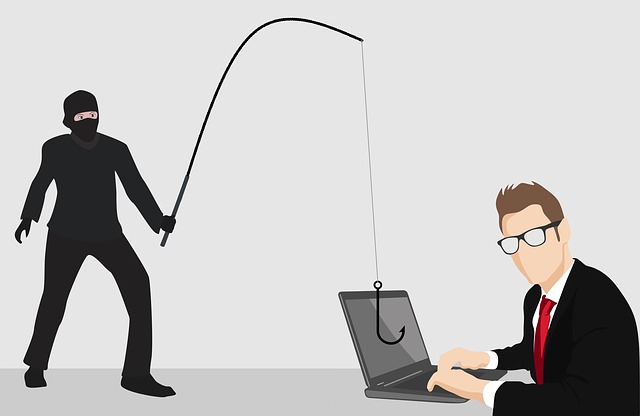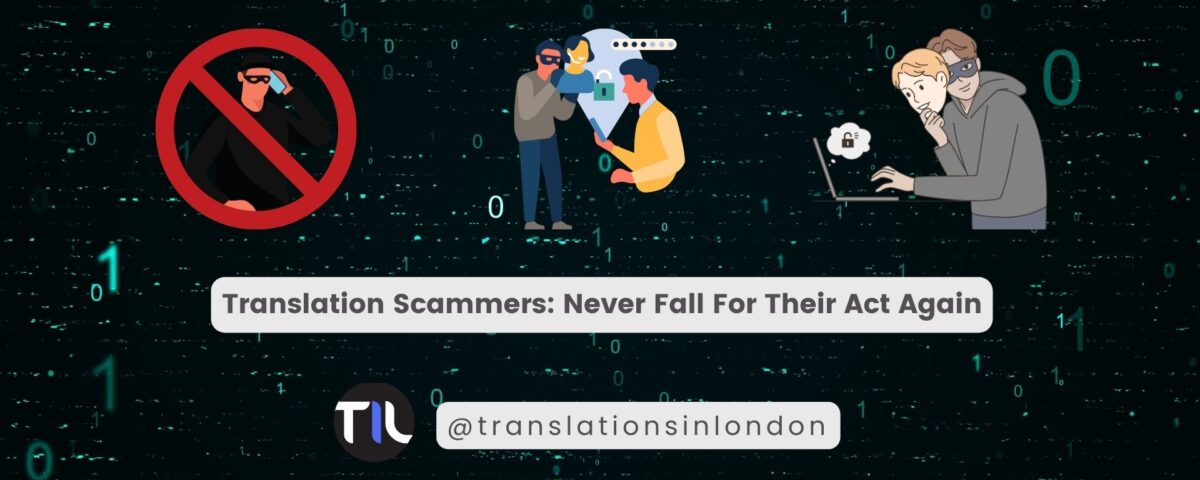One thing that someone might not expect when integrating the translation industry is how crucial safety measures are for agencies. Since the hiring process in this industry mainly happens online and very scarcely involves a call, it is worryingly easy for scammers to simply steal information, CVs and even sometimes certificates from a real translator and apply to agencies with a fraudulent profile.
Receiving fake applications is an everyday issue for vendor managers, which is why security is the main aspect of their job and represents a considerable responsibility in their work. As to avoid projects going to scammers, they have to constantly check the identity of the applicants and look out for any red flag. For years now, our hiring manager has been filtering applications and stumbling up many, many fraudulent CVs, which is why we started reaching out to an incredibly useful website called Translator Scammers Directory.
They operate very meticulously and have helped us avoid many scams. That’s why this week, as we started looking more into the frauds that plague our industry, we asked them if they were willing to answer a few questions for us in order to get a better understanding of that website that makes our work so much easier.

Our Interview with Translator Scammers Directory
1. How did you start this website and how long have you been running it?
❝Our website went online in mid-February, 2014, with just over 100 fake IDs (name+email). We now list 7248 IDs and data is updated daily with the help of our volunteers.❞
2. What would you say are the first signs to look out for when dealing with scammers? Is there a way to detect them at first glance?
❝1. As we say on our website, it takes a somewhat aware eye for this CV scamming problem no more than 30 seconds to identify a fake CV. Ok, some others may take about one minute, but not much more. In their frenzy to make fast money, scammers are, above all, stupid.
2. Start by the email: always from free accounts, with funny formatting, numbers and other tell-tales that one simply doesn’t find in a genuine personal and professional email.
3. The name, is it from a genuine translator with an established Internet footprint? Because, sometimes, scammers just use a real person’s name. They have reasons to do that, as we explain in further detail on our website. Also, a “translator” with “20-year experience” with no trace online is just weird, right?
4. Check the street address and the phone numbers. They’re fake, of course, and not meant for real contacts, but who doesn’t have a street address and a phone number? We keep track of those, too.
5. And, if you’ve found a “translator” which you’ve been hoping to find, always read the whole CV. You’ll see a lot of past “language teachers”, 4 degrees in 4 universities in 3 different continents and other jokes like that. By the way, we also keep all and every fake CV we have ever received and they’re online.❞
3. If you had to give an estimation, approximatively how many agencies reach out to you on the daily?
❝The ones that contact us the most send us fake CVs. Others send us the scammers’ invoices, when they’ve been taken for a ride (and, yes, with the most hilarious fake CVs imaginable…). Others think that we should do their ‘due diligence’ work, and that we exist to vouch for CVs. We do not. And, lastly, we’d like to get more feedback, because we virtually get none, from companies that have posted job offers online to which we always send a cautionary email about the high probability of them receiving responses from false translators with fake CVs.❞
4. Do you feel like the number of scammers has been increasing over the last years?
❝Not really. The number of “operators” in the CV scamming business has not gone up, but the number of fake CVs maybe it has. But what can scammers do? Busted everywhere, they can only resort to stealing another CV or making another one up from copying and pasting segments from 2, 3, or even 4 other CVs, in the hope that “this one will go through”. Only to be busted again. And, now, more than ever, because there’s a lot of people all over the world who are fully aware of this plague❞
——————————————————————— End of Interview ———————————————————————————-

Our Conclusions
This exchange made us realise just how recurrent this issue was. It has now been going on for years and pesters agencies multiple times on a daily basis. Even though frauds can often be easy to detect, they are so numerous that we never know when one might escape our watchful eyes and slither into our database of translators. We can’t spend even more time than we already are examining applications and researching names, but what we can do is face this issue together and try to avoid the risks it represents through communication.
Filtering fraudulent applications is very time-consuming, but it can help others avoid wasting the same energy by warning them ahead of time. This is one of the scarce situations where agencies need to unite and work together to help others avoid becoming a victim of scammers. By taking a minute to transfer a scammer’s CV to other agencies, they might return the favour later and help you dodge a few fishy applications.
It also only takes a minute to send feedback to the Translator Scammers Directory after receiving a cautionary email from them! Their service is without a doubt the greatest weapon we have against scammers in this industry. TIL has been reaching out to them for years now, and it has helped us avoid many issues.
If you ever feel the need to, you can once again reach out to them here to check the veracity of an application, or find more information about their website here!
This post was written by the TranslationsInLondon team. TranslationsInLondon is a leading translation agency. If you require translation services, please feel free to reach out.


